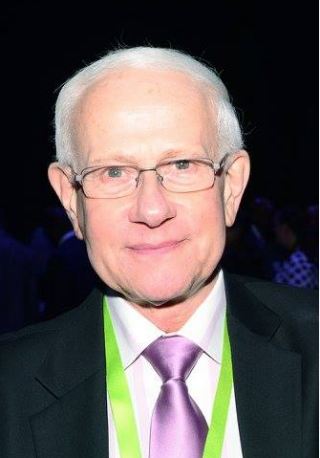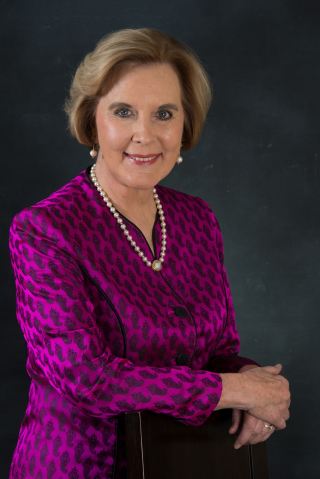Three top tips for executives going on Christmas vacation
By Signium Africa
You can’t have a real vacation if everything in your environment reminds you of business pressures and family responsibilities. You don’t have to go overseas, just somewhere different. It could be a game lodge in the bush, a holiday at the coast, camping by a dam, or simply staying in an unfamiliar town.So, if you’re a busy executive, treat your partner, your kids and yourself to a new experience. There will be plenty time for inlaws, friends and business when you get back.
Mosima Selekisho, Director: Executive Search - Pace your vacation timeTry to break your holiday into three phases: relaxation for winding down; rejuvenation for enjoying yourself; and reactivation to prepare for your return. Ideally, you need three weeks - one for each phase - but if you have less time, divide it into these stages anyway.As a competitive leader, your first instinct might be to jump on a jet ski or go skydiving. Rather opt for a good massage at the local spa, sunbathing on the beach, or anything else that lets your body rest and your mind drift. You need this.By the second phase, you’re ready to get out and have as much fun as possible, having forgotten other concerns. In the third phase, you can still have fun while making time to dream of what the new year holds in store and any positive actions you intend to take on your return.
Michelle Moss, Director: Assessments - Take a digital vacationOur devices have become a part of our daily lives so it’s difficult to switch off and disconnect for any period of time, especially for the always-on executive. Even going on holiday, we use our phones for electronic flight boarding, booking into hotels, hailing ride-sharing services, finding interesting dining and entertainment venues, taking photos and more.Yet, the more disconnected your vacation, the quicker you’ll be able to settle into the holiday spirit. Try these tips: leave your devices at home - you, your partner and your kids. Take only a single phone for emergencies, preferably with a new SIM, and share the number with a select few contacts. And switch it off when you’re not using it. For taking photos, bring along a digital camera so there’s no excuse to check emails in between.Have a great holidayIn a nutshell, disconnect digitally, mentally and physically to get the most from your vacation. Finally, from all of us at Signium, have a very Merry Festive Season and a Happy New Year.
Signium Africa (previously Talent Africa), a leading South African-based executive search and talent management company servicing sub-Saharan Africa.
www.signium.co.za
CQ Is The New EQ For Executives
By *Michelle Moss, Director: Assessments at Signium Africa
Second only to emotional intelligence (EQ), cultural intelligence (CQ) is fast becoming one of the most in demand skills for executives in today’s culturally diverse world of business. The growing need for CQ is just one of the consequences of globalisation.
It’s true that companies are setting up more bases in foreign countries than ever. But their own societies are simultaneously becoming more culturally diverse, as foreign citizens migrate in search of better career opportunities and lifestyles. This means that culture is no longer a minor concern for executives. It’s a strategic imperative, and high-CQ leadership is needed to intelligently address this trend. So what is cultural intelligence? And is it possible to develop it in your executive team? The simplest and most used definition was developed by researchers Ang and Van Dyne in 2008, as “the capability of an individual to function effectively in situations characterised by cultural diversity.”
They also suggested that CQ is structured in four dimensions, namely, metacognitive, cognitive, motivational, and behavioural CQ. These have been adopted, more or less, in subsequent research and can be summarised as follows. Metacognitive CQ is “an individual’s level of conscious cultural awareness during cross-cultural interactions”. Cognitive CQ is “knowledge of norms, practices and conventions in different cultures that has been acquired from educational and personal experiences”. Motivational CQ is the “capability to direct attention and energy towards learning about and functioning in situations characterised by cultural differences”.
Finally, behavioural CQ is the “capability to exhibit appropriate verbal and non-verbal actions when interacting with people from different cultures”. In summary, executives must be aware of cultural differences, understand them, be willing to learn more, and act in relation to that understanding. What the above establishes in no uncertain terms is that CQ is not an innate competency. It can be acquired through training and, most importantly, exposure to the culture in question.
The benefits of increased CQ are becoming more obvious by the day. Most CEOs agree that as technology takes over many traditional business functions, success will be defined by how well people interact with each other. They also agree that diverse management teams foster innovation because they bring important cultural perspectives to the table.
However, differences often breed conflict and companies who fail to foster CQ may find themselves unable to manage that diversity. In fact, CQ and innovation are closely correlated. Consequently, they risk losing their competitive edge and corporate sustainability. According to a survey by the Economist Intelligence Unit (EIU), 70% of international ventures fail because of cultural differences. Another source reveals that 90% of executives from 68 countries say that cross cultural management is their toughest challenge.
Culture is becoming so critical to business that in some organisations, astute CEOs are heading up their diversity and inclusion practice groups. It is in every business’s interest, whether they operate locally or internationally, to nurture CQ in their enterprise, especially in their executives and C-suite. If that critical talent cannot be developed in house, it should be acquired externally through executive search.
*Michelle Moss is a Director: Assessments at Signium Africa (previously Talent Africa), a leading South Africa-based executive search and talent management company servicing sub-Saharan Africa.
Website: www.signium.co.za
Tel: +27 11 771 4800
Leadership? Only humans need apply
By Annelize van Rensburg* - Director: Signium Africa (www.signium.co.za)
Ours is a disruptive world. Disruptors include AI, robotics, computerisation, globalisation and the imminent fourth industrial revolution. Already, a growing number of commercial and industrial processes are being dehumanised. So, are humans reaching their sell-by date?
Admittedly, people will have to adapt or cry (over lost jobs or diminished career prospects). The good news is that a stellar future awaits those who are flexible, resourceful, emotive and empathetic (in other words, the very human humans). This is especially true of corporate leaders who are developing coping strategies for the 2020s.Pertinent insights are afforded by work in my own specialisation – executive search and talent acquisition. Among leading practitioners, the goalposts have widened to the point where the work now entails close partnership with corporates with the aim of shaping integrated leadership and talent solutions.
Listening, understanding and empathising are the key requirements, not crunching the data to find candidates with the technical qualifications and relevant experience. Machines can do that.But machines can’t sense the cultural fit or feel the chemistry when a potential leader is exposed to new challenges.
These days, you can put a smiling face on a machine, but you can’t instil empathy and the human ability to assess feelings and emotions. Only humans can do that – whether you are a so-called headhunter looking for the ideal fit or a seasoned business leader creating a succession strategy by developing and acquiring the right talent.The importance of very human qualities is spotlighted when working with an individual executive looking to ensure continued relevance as a senior corporate performer.he key question is: what do I need to do or be to ensure career success in five years’ time?
Research the literature and international studies and the answer is the same … stay human, become more empathetic, improve your listening skills, increase your understanding of the needs of others and look to make an emotive bond with peers and subordinates.how your human qualities and colleagues and customers open up to you.
An ongoing conversation with key players will nurture the relationships that enable the organisation to anticipate demands and meet expectations.oft skills can’t be written into an algorithm. They set us apart and ensure our superiority over the cobots. Soft skills don’t create soft leaders. They create a growth platform for highly successful, ultra-receptive leaders.So, demonstrate learning agility, absorb new information and insights. Make sure there is still joy and excitement in your job; not just for you but for everyone on the team.
Creativity drives today’s successful business, not mindless repetition. A very human spark drives creativity, not reams of data.Insight and interpretation give leaders the power to focus on the key issues. A machine can generate a 25-page report filled with techno-babble. A receptive human can condense that into one page with half-a-dozen action points.ind joy in sharing and communicating. If you take everything on your own shoulders you eventually feel sucked dry by the demands of leadership. You go on to auto-pilot. In other words, you become a machine, and that’s a no-no.
Adapt by all means, but stay human. You and your organisation will be better for it.
*Annelize van Rensburg is a director of Signium Africa (previously Talent Africa), a leading South Africa-based executive search and talent management company servicing sub-Saharan Africa.
Career risk mitigation – the way to go for corporate high flyers
Career risk mitigation – the way to go for corporate high flyers by Michelle Moss* (Signium Africa: www.signium.co.za) 2019 Obsolescence. It happened to VCRs. It also happens to executives, even high flyers; especially the tunnel-vision variety that obsess about the job on hand.
Obsolescence no longer takes decades. It can happen at pace as technologies change and businesses react to new legislation, heightened competition and more demanding customers. Forward-thinking executives increasingly realise they have to be fit for purpose today and in five years’ time. Obsolescence is a career risk and like any risk can be managed by putting proper mitigation strategies in place.
Talent search and management companies – so-called corporate head-hunters – face increasing calls from individuals for a heads-up on changing competency requirements. Often, the request comes from the mid-life CEO, the high achiever who took a leadership role aged 45 and is determined to be in place (or to have moved on to bigger and better things) by the time he or she is 55. Competency-focused future-spotting is driven by the desire to mitigate the risk of a stalled career. However, parameters widen almost immediately.
Reference to relevant literature like the World Economic Forum’s ‘Future of Jobs Report 2018’ and the work of the MIT Initiative on the Digital Economy indicate that personal competencies are inextricably linked to the corporate future. The business or industry vision invariably shapes the personal quest for continuing relevance by individual executives.
A global player like Riverwaves (a world leader in bespoke competency-based HR solutions) is close to these developments. Alexandra Pascu, Riverwaves’ GM - Middle East and Africa, notes: “Customised competency models drive business strategy while delivering benefits across the board - at individual, HR department and organisational levels.”
According to studies on the statistical validation of competency models**, the tangible return on investment includes a 63% reduction in staff turnover through increased employee satisfaction (attributable to greater clarity on performance expectations), a 19% improvement in employee performance and a 12.5% rise in sales and profits (a by-product of competency-based training). Adoption of a bespoke competency model enables organisational vision and values to be translated into employee behaviour.
According to Pascu, the corporate embrace of competency modelling has been accompanied by a global increase in demand for in-house competency training for line managers and talent professionals. So, we see shared focus on future-ready skills by both the organisation and its people (including those in the C-suite).
Individuals looking to avoid personal obsolescence increasingly find themselves working in a de facto partnership with organisations that are just as eager to stay current and relevant. The result doesn’t have to lead to a total immersion in new technologies. We may find ourselves working alongside robots and co-bots while dealing with digitisation and artificial intelligence, but very human attributes will make us special and keep us on top.
The World Economic Forum believes workforces will become even more diverse (multi-racial, multi-cultural and multi-generational with greater female representation). Orchestrating the input of ‘gig’ workers, freelancers, short-term project teams and consultants will be vital as structures become more flexible. Such scenarios help explain a quick competency to-do list suggested by MIT’s Erik Brynjolfssons. He advises us to put our focus on: o Creativity o Emotional intelligence (interpersonal skills, teamwork and leadership) o Passion for our work Apparently, love never goes out of style.
Not even love for what you do.
-- ENDS --
*Michelle Moss is a Director at Signium Africa (previously Talent Africa), a leading South African-based executive search and talent management company servicing sub-Saharan Africa. www.signium.co.za **Meta-analysis study reported in “The economic value of emotional intelligence competencies and EIC-based HR programmes”, Lyle Spencer. In Cherniss, C. and Goleman, D. eds. The Emotionally Intelligent Workplace: How to Select for, Measure, and Improve Emotional Intelligence in Individuals, Groups and Organisations. San Francisco, CA: Jossey-Bass/Wiley 2001. Spencer, Lyle, “Competency Model Statistical Validation and Business Case Development.”www.inscopecorp.com/resources-papers-statistics.aspx, 2004.
Website: www.signium.co.za Tel: +27 11 771 4800 Issued By: Tale Spin Media & Marketing Zelda Williams 082 461 0689 or Gillian Schmid 082 960 3233 This email address is being protected from spambots. You need JavaScript enabled to view it. This email address is being protected from spambots. You need JavaScript enabled to view it.
If you want to get ahead get a pet!
By Gusti Coetzer, director at Signium Africa www.signium.co.za
Pets! Who needs them?!
You do; especially if you’re a rising executive hoping to de-stress and stay healthy while achieving better work-life balance. Furry friends also help you empathise and develop your emotional IQ – soft skills that may be essential to success in a senior team.
Pet ownership can also be a plus point during job interviews as well-informed main board directors are apt to sneak in a surprise question about you and your pets. It’s not just an oddball question to probe your softer side. The benefits of pet ownership are becoming more widely known and it’s good to know whether a top candidate ticks the right pet ownership boxes.
New data give paws, sorry, pause, for thought.According to one US survey, 93% of top executives grew up with a pet and 78% partly attribute career success to childhood pet ownership. Survey respondents say having a pet taught a sense of responsibility and helped them show empathy.Later in life, walking the dog helped them relax and come up with business ideas. Pet ownership also helps these executives connect with colleagues who also own pets.
Various surveys spotlight a pet’s knack of de-stressing owners and the ability of pets to “spread laughter and positivity”.One US study (the Human Animal Bond Research Initiative) quantifies many benefits. For example, pet owners save an estimated $11.7 billion a year in visits to the doctor while the 20 million American owners who walk their dogs five times a week keep obesity in check and save $149 million in healthcare.Many respondents credit pets with helping their work-life balance. Laptops and smart devices can merge home and office into one. The danger is that the executive never stops. But a pet can force you to take a break.
Similarly, workaholics who live at the office attest to the life-changing properties of pet ownership. Having a dog or cat waiting at home gives you a reason to call it a day.
Researchers increasingly focus on quite specific medical benefits.They have found that pet owners tend to have healthier hearts and feel less depressed. When you own a pet, blood pressure and heart rates return to normal faster after a stress test. Performance under stress also improves.Apparently, simply stroking your pet can lower your blood pressure and cholesterol.In a nutshell, if you’re animal crackers you’re less likely to crack up at work. That’s got to be good news for pet-friendly decision makers and the businesses they lead.
*Auguste (Gusti) Coetzer is a director of Signium Africa (previously Talent Africa), a leading recruitment company based in South Africa offering executive head-hunting and leadership consulting - servicing sub-Saharan Africa. www.signium.co.za
Shadow director jeopardy stalks SA advisory boards
By *Gusti Coetzer (Signium Africa) and **J Michael Judin (Judin Combrinck Inc)
Advisory boards seem an obvious way forward for companies run by executives with limited global leadership exposure. One of the biggest advantages of advisory boards in South Africa is the facilitation of input and advice from wise old heads. In this way, highly respected, vastly experienced managers can make an important contribution to the company and the new South Africa.At the same time, younger managers and business school graduates benefit from the sort of knowledge not found on an MBA course.So, where’s the potential flaw?The pitfall is found in the grey area between advice and direction or between a general observation and a specific instruction.
If an instruction or direction is given, an advisor may be regarded, for legal purposes, as a ‘shadow director’ and that could spell trouble for any advisor who has not taken out insurance to cover the risks run by formal boards of directors in the event of liquidation or fraud.October 2018Some concepts are so useful in a new nation crying out for skills that widespread adoption is only a matter of time. The danger is that the advantages are so manifest they distract attention from the one potential flaw that could turn a well-intentioned initiative into catastrophe.For example, the coming trend around the establishment of advisory boards carries with it a largely overlooked risk that deserves to be examined in detail before any harm is done.
To explain …Advisory boards seem an obvious way forward for companies run by executives with limited global leadership exposure.One of the biggest advantages of advisory boards in South Africa is the facilitation of input and advice from wise old heads. In this way, highly respected, vastly experienced managers can make an important contribution to the company and the new South Africa.
At the same time, younger managers and business school graduates benefit from the sort of knowledge not found on an MBA course.Some businesses also recruit advisory board members for the ‘halo effect’. They borrow credibility or gravitas as a line-up of advisory board luminaries can smooth the path to the big league and might attract investors or assist in fundraising.Practical considerations also support the trend.Formal board structures are expensive to set up while company directors carry heavy fiduciary and statutory responsibilities.Remuneration of advisory board members is often modest, making these informal structures affordable for young, dynamic companies.In effect, relatively inexperienced executives tap into a wealth of knowledge at a discount while the business benefits from diversity and access to a wider range of opinions.
Of course, an ‘elder statesman’ is sometimes seen as a human Rolodex, with scores of local and international contacts. Gaining access to such a high-level network can be as simple as bringing a senior figure on to the advisory board.Other needs can also be addressed through the use of advisory boards. For example, a company planning to enter new, high-growth markets dominated by black consumers may need the insights of black influencers, who could be recruited to the advisory team.
Young advisors might also be used on an advisory board to lend digital skills to an older board with limited understanding of high-tech developments.For all of these reasons, many companies (and some charities) increasingly ask leading firms of executive ‘head-hunters’ for the names of possible candidates for places on their advisory boards.This can be an easy ‘sell’.Many senior personalities are eager to give back. They are generous with their time and eager to share knowledge with a new generation of business leaders.Advisory board remuneration may not be spectacular but advisors carry no statutory or fiduciary responsibilities.
It’s not a hard slog in the corporate trenches. You’re not giving blood, you’re giving strategic insights.So, where’s the potential flaw?The pitfall is found in the grey area between advice and direction or between a general observation and a specific instruction.If an instruction or direction is given, an advisor may be regarded, for legal purposes, as a ‘shadow director’ and that could spell trouble for any advisor who has not taken out insurance to cover the risks run by formal boards of directors in the event of liquidation or fraud.Advisors found to have acted as shadow directors may be held to be just as accountable as formal directors.The definition in the UK Companies Act is illuminating. It says a shadow director is someone “in accordance with whose directions or instructions the directors of a company are accustomed to act”. Though our Companies Act does not specifically refer to shadow directors, section 1 is broad enough to include the concept in view of the phraseology “occupying the position of a director”.
Risk also applies should a company portray an advisory board member as a member of the formal board.Individuals are also on risky ground if they regularly negotiated on behalf of the company or took on a corporate function; perhaps recruitment of certain specialists or professionals who might have been impressed by the involvement of such a senior figure.Should a firm become insolvent, a liquidator will closely scrutinise the actions of all responsible persons, and this may include members of the advisory board. Much the same applies in the event of fraud.In a worst-case scenario, creditors may target anyone assumed to have ‘long pockets’, including advisory board personalities who apparently acted as shadow directors. The result could be personal bankruptcy.Overstepping the line between advice and active participation in the business can be extremely easy.As the advisor works more and more closely with senior figures, he or she may be consulted quite frequently.
You may think you are simply being helpful by going over a business plan or reviewing financial projections. This may become a habit. After a time, what you say goes on specific issues … taking you into the no-go area where you become a shadow director.If you wish to avoid directorial liability, don’t go there. The good news is that alleged liability only becomes an issue if you functioned as a shadow director. If you simply acted as an advisor while sitting on an advisory board, you are totally in the clear.
*Auguste Coetzer is a Director of Signium Africa (previously Talent Africa), a leading South African-based executive search and talent management company servicing sub-Saharan Africa. **J. Michael Judin is a partner in the Johannesburg law firm of Judin Combrinck Inc. He is a member of the King Committee, a non-executive director of the American Chamber of Commerce in South Africa and co-chairman of a sub-committee of the American Bar Association Business Law Section.
How to manage your career in a corporate crisis
Your company is embroiled in a reputational crisis of such magnitude it could bring down the business and with it your previously stellar career as a senior executive… what do you do to protect your own good name?
It’s no idle question. Some huge organisations – from BP to Ford to Volkswagen to KPMG – have recently been in the reputational crosshairs and in the era of non-stop communication, whistle-blower hotlines and tighter regulation more will follow.US estimates indicate 19 out of 20 US companies are unprepared or under-prepared for the management of reputational crisis.
Even the PR kingpins at Bell Pottinger appeared totally taken aback when scandal erupted on their own doorstep.We can therefore assume most local firms are at least under-prepared and so are their top executives.However, some lessons have been learned over the years and broad guidelines put in place; though they generally relate to corporate rather than individual executive responses.In many instances, however, advice to corporates can be reworked into advice for individuals.Among tips for corporates is to anticipate crises, conduct an audit of ‘vulnerabilities’, have a plan in place ahead of time along with agreed procedures, nominate approved spokes-people, brief them on what may or may not be said, and try to appear helpful and ready to communicate rather than go to ground.Individuals can follow a similar strategy.Personal vulnerabilities are shaped by executive roles and divisional responsibilities.
So, if you are CFO, make sure you are exceptionally well informed on hot financial media issues (e.g. transfer pricing or base erosion profit shifting across borders).If your division engages in activities that might cause pollution, make sure you are on top of all environmental developments, while insisting on rigorous controls.Prudent personal preparation includes reinforcement of your own reputation for ethical dealing.Don’t simply talk the talk. Walk the walk. Make good ethical practice an integral part of your approach to your work and personal conduct.Involve yourself with initiatives undertaken buy professional and industry bodies to strengthen ethical standards. Include in your personal network any industry figures, academics or professionals known as good governance champions.
Tap these ethical gurus for updates on latest practice.Speak on ethical issues on industry occasions, though this just might boomerang if your company is caught red handed.Remember, if you are on the Exco, you are accountable. Senior executives are frontline PR people, like it or not.If you are confronted by difficult questions (from media or staff) don’t become defensive.
‘No comment’ is code for ‘We’ve something to hide’.You could perhaps say the issue is under review and nothing can be said until enquiries are complete.Maintain communication with staff, suppliers and associates, even if you can only generalise and request patience.
Refusing to take calls does not help.When communicating – even privately or via social media – never impugn your own organisation.You can say you share public concern and indicate sympathy for those affected by the alleged lapse in standards, but joining the chorus of criticism strikes the wrong note and positions the executive as a turncoat.As the crisis unfolds, the executive has to face a critical question: Do I resign or stay? The answer depends on the nature of the scandal, the degree of perceived involvement, the reactions of corporate and industry peers, and perhaps professional and legal advice.If an individual is well known as a fair, honest and ethical professional, damage limitation is possible, though even totally innocent parties can be tainted by association to some degree.Individuals may face extra scrutiny from their peers, investors and prospective employers.
A well-prepared executive with a sound personal reputation should be able to withstand the scrutiny, though living with the aftermath of scandal can make huge demands on those concerned.Executives who cope best are those who know their consciences are clear and did everything possible to uphold ethical standards.








